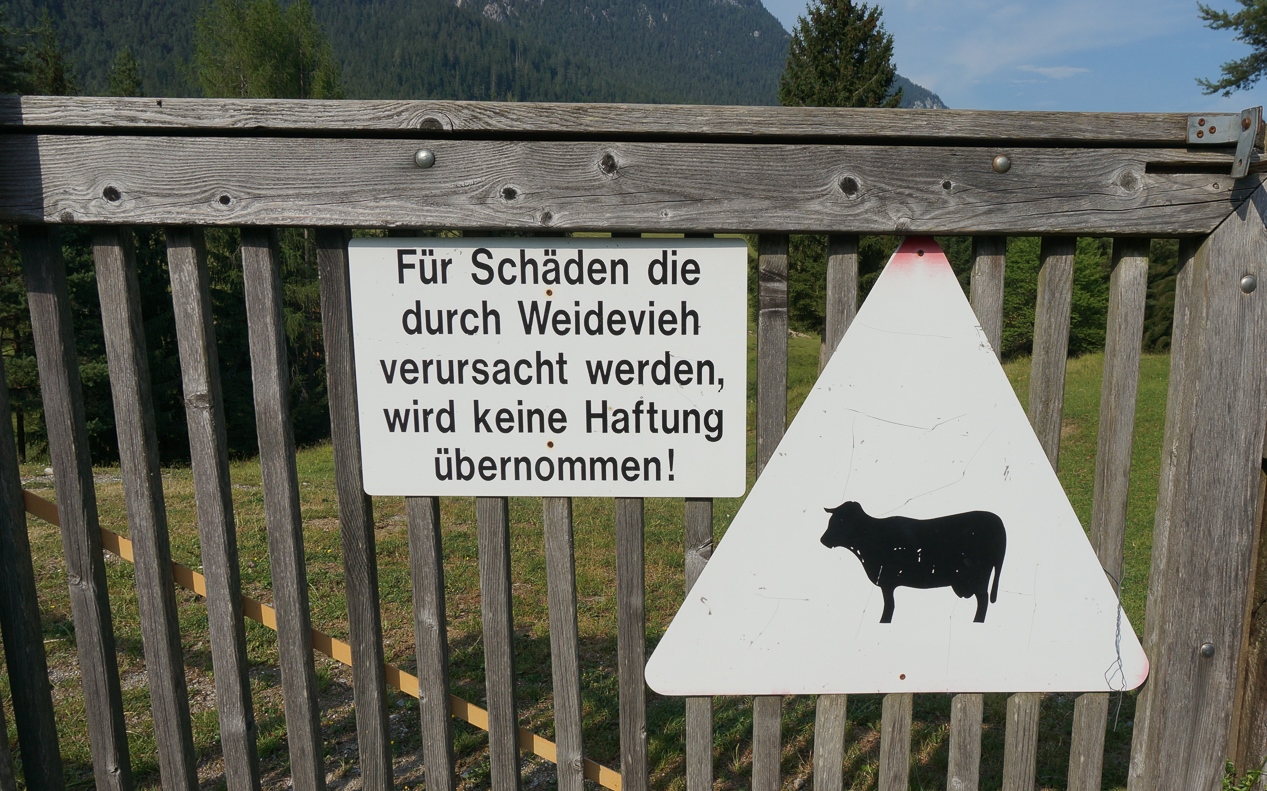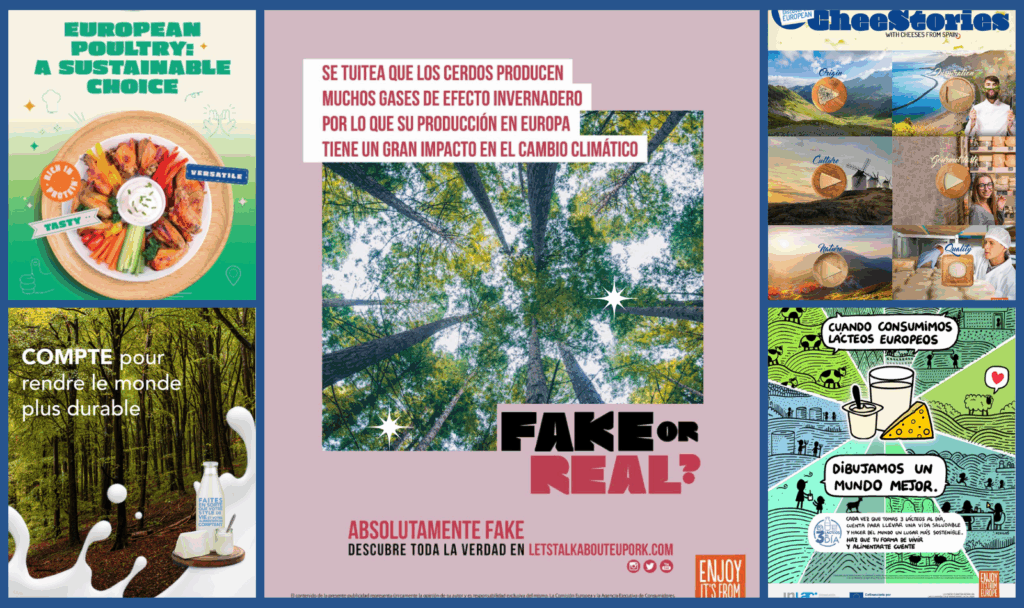During September’s Climate Week in New York City, the world’s major food companies lined up to share their pro-nature credentials, claiming that they are embracing “regenerative agriculture” practices that will reduce their massive carbon footprint.
However, a new report finds that multinational food and ag companies – such as Cargill, Nestlé and PepsiCo – which are using the term, have barely changed how they do business.
A total of 30 major agriculture companies were analysed in the report, which was released in September by the NewClimate Institute. It found that while around 80 percent of the firms were heavily referencing the phrase “regenerative agriculture” in their climate and sustainability strategies, only a third had targets, and many lacked specifics on how plans would be implemented, or applied them to just small subsets of their total operations.
The report’s findings also echo earlier analyses that companies’ vague definitions of ‘regenerative’ – which can encompass a wide range of nature-friendly farming techniques such as no-till and organic farming – are undermining accountability. Several farming schemes running under the banner are not making clear what practices they include, or what benefits they will provide for sustainability efforts. And company claims of lowered emissions are not always backed up.
As a result, the plans of companies analysed in the study fall short of tying the firms to transformative action, with the report’s co-authors concluding the firm’s plans lack “the ambition necessary to significantly reduce pollution, environmental degradation, emissions or even increase soil carbon sequestration”.
Agriculture is responsible for between a quarter and a third of global carbon emissions, as well as being a leading driver of the past half-century’s sharp declines in wild habitats and wildlife populations.
Experts say that failing to reform the sector’s polluting practices – such as by cutting the use of pesticides and polluting synthetic fertilisers – will harm global efforts to curb climate change and reverse biodiversity loss.
The new report echoes a growing body of evidence that – on the climate front – food and ag companies using vague definitions of regenerative agriculture may be misleading consumers and policymakers, especially when the term is not defined by regulators.
“Regenerative agriculture, as it is currently used by large agrifood companies, may distract from necessary emission reduction measures”, said Eve Fraser, who co-authored the NewClimate Institute report. “For example, focusing on regenerative agriculture’s potential to increase soil carbon sequestration, diverts attention from the need to reduce emissions, rapidly and effectively.”
“It’s really a huge scam,” concluded Molly Anderson, a member of the International Panel of Experts on Food (IPES Food), who co-authored an earlier report on regenerative agriculture in 2022. “It’s something that’s being used by corporations to justify their greenhouse gas emissions.”
Hazy Definitions
Researchers at the NewClimate Institute evaluated how Big Ag is using the “regenerative agriculture” label by filtering for the term in the climate plans of 30 of the world’s largest industrial food and agriculture producers, such as Unilever, the world’s biggest food company, commodities companies like Archer Daniels Midland, and dairy companies like Danone and Nestlé.
Agriculture is the leading driver of the potent greenhouse gas methane, which is responsible for a third of human-caused warming to date. The sector is also a heavy user of fossil fuels, including to produce synthetic fertilisers, which are a major source of nitrous oxide, a potent greenhouse gas.
The sheer scale of the operations of the companies also means they are major emitters in their own right. Nestlé has emissions three times the size of its home country Switzerland, for example, due to methane from its dairy supply chain.
Meat and dairy companies in particular were found by the researchers to be using the term “regenerative agriculture” in misleading ways. Drinks companies such as Coca Cola and Diageo, as well as confectionary company Mondelez, were highlighted as using especially hazy definitions.
Mondelez defines regenerative agriculture as an approach to farming which aims to produce “high-quality crops” while also “restoring the natural rhythm of our surrounding ecosystem” – a definition which makes no reference to specific practices that would reduce emissions or boost biodiversity.
Lauren Baker, the deputy director of the Global Alliance for the Future of Food, believes we are seeing “rampant greenwashing” from corporations making false claims about regenerative agriculture. The answer to this, she says, lies in coming up with universally accepted definitions, which has happened in the case of “agroecology” and “sustainable agriculture” – both of which have been endorsed by the UN’s Food and Agriculture Organisation.
“Food systems approaches that aim to repair, regenerate, and transform our systems toward resilience must address the systemic issues of equity and power,” she said, making reference to the 13 principles to guide food systems transformation drawn up by the UN in a multi-year consultation process. They include a commitment to reducing toxic agrochemicals, paying workers a living wage and encouraging local production and healthy diets.
Dairy giant Danone, which is often seen as a sustainability leader in the sector, is identified in the study as having the most ambitious framework for action. But even this fails to include standard low-impact agriculture practices such as reduction of pesticides and synthetic fertilizers within its wider supply chain.
A spokesperson from Danone said regenerative agriculture was an important part of a “broader strategy, which includes a mix of initiatives to reduce greenhouse gas emissions in the agricultural supply chain and implement practices that restore nature”. They added that the transition for farmers away from pesticides and synthetic fertilizers could be “challenging” and “takes trial iterations over several years”.
Molly Anderson said that without a fixed definition, companies will continue to use the term “regenerative agriculture” to enhance their reputations, while making no major changes to their operations.
Lack of Concrete Targets
In recent years agriculture and food companies have been criticised for saying they are implementing regenerative agriculture but failing to say how they’re doing it, or to set concrete targets that make it possible to gauge progress.
This latest report finds that even companies that have set targets are not delivering on them, and are applying them to only a small fraction of their operations.
Biscuit manufacturer Mondelez has advertised its targets for shifting to regenerative agriculture, but only for a small section of its European business, and has no “publicly available” frameworks that explain what will be needed to achieve them.
Similarly, commodities multinational Cargill says it will “advance” the use of regenerative methods across 10 million acres by 2030, but does not provide the details of how it will do that.
Again, the strategy is partial. Cargill’s target covers only its North America holdings, while the company operates in 70 countries worldwide. Cargill told DeSmog it was transparent in communicating its progress and actions on regenerative agriculture, and directed me to its latest ESG report.
It said in an email: “ Sustainable agriculture starts at the farm, and every farm is unique. That is why we partner with farmers to support practices that will work best for their operation and climate. Cargill provides financial incentives to farmers for achieving positive environmental outcomes when they adopt regenerative agriculture practices including cover crops, no till, rotational grazing and nutrient management.”
These schemes are a “drop in the ocean” for the big food and ag multinationals, according to Simon Kraemer, the policy steward for the European Alliances for Regenerative Agriculture, a farmer-led network. Kraemer believes such pledges may act as a “fig leaf” to cover for continuing to pollute and other unsustainable practices.
Max Boucher, a research and engagement manager for the investor network FAIRR, told me that when used effectively, “regenerative agriculture has the potential to support the shift to a more sustainable future”.
But for ag and food companies in an evolving regulatory landscape, those that “do not establish clear targets and substantiate their claims could face significant financial and reputational risks.”
Tyson Foods, a meat company that has promoted its involvement in regenerative farming, now faces “greenwashing” lawsuits alleging that there is nothing to back up the company’s claims that it will zero out its carbon emissions by 2050 or provide climate-friendly beef.
Shaky Science
The report’s authors also found that of the 30 companies studied, just over half are limiting regenerative agriculture to improving nature-based resources that remove carbon from the atmosphere, such as through the soil, with no plans to cut their own pollution.
Eve Fraser, a co-author of the report, told me that this focus on offsetting emissions rather than reducing them could be a way to keep pollution levels high. For example, meat and dairy companies are using “regenerative grazing” to “continue unsustainably high production numbers”.
Scientists say these natural carbon sponges, termed “carbon sinks”, can play only a limited role in helping to meet carbon reduction targets — and that as temperatures continue to rise, even carbon sinks themselves are collapsing.
Soil-based carbon removals — which are heavily promoted by major food and agriculture companies – are particularly difficult to measure, as well as being impermanent and finite,
Meat and dairy companies argue that they can offset their emissions – which are primarily caused by the methane in cow burps and farts – by grazing cattle outdoors, and encouraging healthy soils in pastures. However, research has found that this is simply not feasible with the current scale of livestock farming.
Sophie Scherger of the Institute for Agriculture and Trade Policy (IATP) told me that “agribusiness has a history of using carbon removals as a fig leaf to hide that they are not reducing emissions”. She says that cutting emissions would require reducing the size of livestock herds as well as the use of fossil-fuel-based fertilisers, something that companies significantly invested in these practices are hesitant to do
“We cannot offset our way out of the climate crisis,” said Scherger.
Front and Centre
At Climate Week in New York last month, Bayer, Danone, and fertliser company Yara were among the multinationals that organised events and “fireside chats” about regenerative agriculture.
RegenHouse, an industry-sponsored event space that hosted many of regenerative agriculture discussions that week, is due to host similar discussions at two upcoming summits: October’s UN Biodiversity Conference, called COP 16, in Cali, Colombia, and the annual UN climate treaty conference, known as COP 29, being held in Baku, Azerbaijan in November.
Another high profile, international initiative is slated for 2025. “Regen10” aims to come up with recommendations for an internationally accepted definition of regenerative agriculture, which is measurable and can be applied across farms.
Simon Kraemer – policy steward for the farmer-led network, the European Alliances for Regenerative Agriculture agreed that corporations were ‘coopting’ the term but urged not to “throw the baby out with the bathwater.”
In Europe there was a strong social movement behind the term, which was successful in converting farmers over from more conventional practices, Kraemer said, and which shouldn’t be disregarded.
However, many are concerned that the regenerative agriculture label will always be wide open to corporate misuse.
“We as a global community need to be clear on definitions to avoid the rampant greenwashing we are seeing as corporate actors make false claims about regenerative agriculture,” says Baker. “You cannot claim to be regenerative if you are using toxic agrochemicals, if you aren’t paying a living wage to your workers or if your product is highly processed and unhealthy.”
Subscribe to our newsletter
Stay up to date with DeSmog news and alerts






